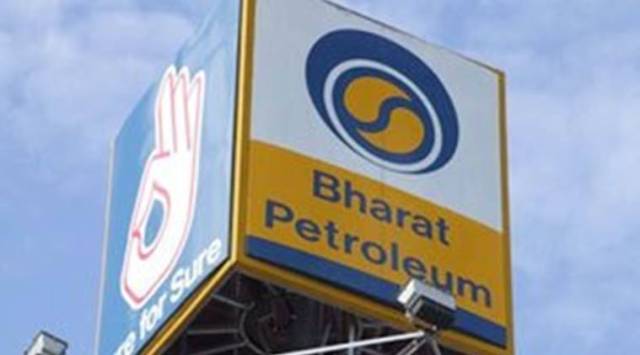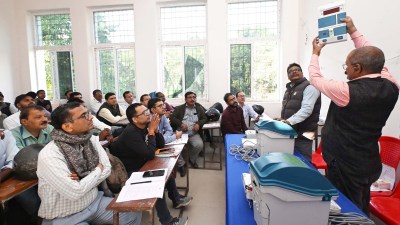BPCL plans trials to see if diesel spiked with ethanol can be a commercially viable proposition
The world’s third-largest consumer of crude oil, India depends on imports to meet over 85 per cent of its oil requirement, leading to massive foreign exchange spending
 Currently, ethanol blending levels in petrol stand at around 12 per cent and the government and public sector fuel retailers are confident of achieving 20 per cent blending pan-India by 2025-26. (Express Photo)
Currently, ethanol blending levels in petrol stand at around 12 per cent and the government and public sector fuel retailers are confident of achieving 20 per cent blending pan-India by 2025-26. (Express Photo)Government-owned refiner and fuel retailer Bharat Petroleum Corporation (BPCL) plans to soon conduct trials of diesel spiked with ethanol by running vehicles on the blended fuel on a pilot basis, senior company officials said. BPCL is currently in talks with the Ministry of Petroleum and Natural Gas, Automotive Research Association of India (ARAI), and a few automobile manufacturers regarding the pilot, which could be finalised over the next few days.
If the trials end up being successful and establish technical and commercial viability, they could pave the way for large-scale blending of ethanol in diesel in the years to come. Unlike petrol, blending ethanol in diesel was not seriously considered until recently due to differences in the chemistry of the biofuel and diesel. Like petrol, ethanol is a Class A product, while diesel is a Class B product. Mixing diesel with a Class A product like ethanol would cause knocking in the engine, and therefore is seen as an option. However, BPCL has developed a binder or additive, which facilitates homogeneous blending of ethanol with diesel.
According to P.S. Ravi, an Executive Director at BPCL, if the pilot gives satisfactory results, the government could allow and even encourage spiking diesel with ethanol. On being asked if he expected ethanol-diesel blending mandates to replace biodiesel-diesel blending, Ravi said “possibly yes”, depending upon how the trials go. Ravi and other BPCL officials did not give further details of the planned pilot project and the automobile manufacturers involved in it.
Unlike the ethanol-petrol blending programme, biodiesel-diesel blending never really took off in India due to challenges with feedstock availability.
Availability of ethanol, on the other hand, is increasing in the country and with numerous second and third-generation ethanol units likely to come on stream over the next few years, there is likely to be more ethanol supply than what would be required for blending with petrol. If blending ethanol in diesel does take off, a part of that excess ethanol could be utilised there.
Currently, ethanol blending levels in petrol stand at around 12 per cent and the government and public sector fuel retailers are confident of achieving 20 per cent blending pan-India by 2025-26.
Apart from reducing emissions of conventional fuels, blending biofuels with petrol and diesel is also seen as an instrument of reducing the country’s crude oil imports.
The world’s third-largest consumer of crude oil, India depends on imports to meet over 85 per cent of its oil requirement, leading to massive foreign exchange spending. With a share of around 40 per cent in India’s petroleum consumption pie, diesel is the most consumed refined petroleum product in India.



- 01
- 02
- 03
- 04
- 05




























